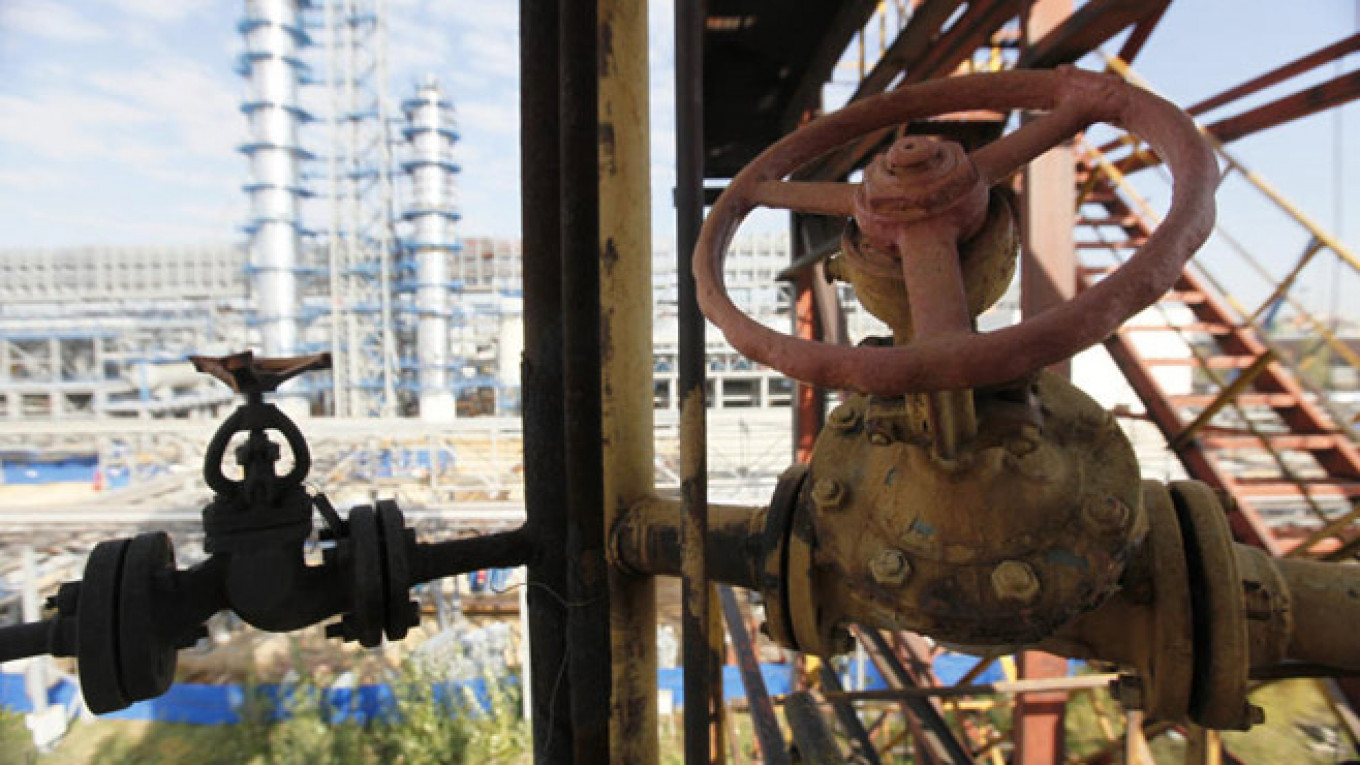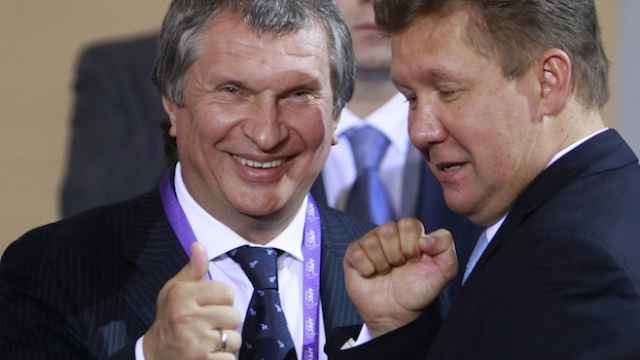Sanctions limiting Russia's access to Western equipment and expertise in shale and Arctic oil production have been in force for two months, but local producers are hardly rushing to replace their U.S. and European counterparts.
In early September, several top Russian oil and gas producers, including oil giant Rosneft, were effectively cut out off from Western funding and technology by U.S. and EU sanctions over Russia's role in the Ukraine crisis.
Energy Minister Alexander Novak said earlier in October that Russia could find domestic substitutes for some of the sanctioned oil and gas equipment and technology within the next three years, and most of it — by 2020.
Besides equipment used to drill on the Arctic shelf or develop hard-to-reach reserves, Russia is particularly dependent on Western fracking chemicals, as well as refining equipment, without which complicated refinery modernization is impossible.
But industry analysts at a conference this week organized by The Moscow Times on the future prospects for the energy industry were doubtful that the picture is so rosy.
While Russian producers might be expected to leap into the gap left by foreigners, so far they have been reluctant to adapt to the new reality, the analysts said.
In a bid to minimize their exposure to possible sanctions, leading international oil field services firm Schlumberger tried to go local.
Schlumberger found one Russian producer to supply the acid used in the fracking process, but found they charged more than foreign firms. Schlumberger offered to help improve the company's production efficiency in return for a lower price, according to Oksana Anisimova, a manager at Schlumberger.
"The reply was that the price will stay fixed and that the company did not want to change anything," Anisimova said, adding that the same answer was received from another producer the company negotiated with.
Without better domestic offers, companies often turn to China to find replacements for Western goods, executives said.
"What happens today is import substitution from China, which can provide the necessary level of quality for an affordable price," Anisimova said.
Some analysts pointed to Iran, which has long been under similar Western sanctions, as a good example of the likely results of a forced attempt to substitute domestic goods for Western technology.
"Iran was unable to localize production and instead switched to equipment produced in China," said Oleg Konnov, a partner at Herbert Smith Freehills law consultancy. Given the current outlook in oil technology, Russia may well be destined for the same fate as Iran, he added.
Contact the author at [email protected]
A Message from The Moscow Times:
Dear readers,
We are facing unprecedented challenges. Russia's Prosecutor General's Office has designated The Moscow Times as an "undesirable" organization, criminalizing our work and putting our staff at risk of prosecution. This follows our earlier unjust labeling as a "foreign agent."
These actions are direct attempts to silence independent journalism in Russia. The authorities claim our work "discredits the decisions of the Russian leadership." We see things differently: we strive to provide accurate, unbiased reporting on Russia.
We, the journalists of The Moscow Times, refuse to be silenced. But to continue our work, we need your help.
Your support, no matter how small, makes a world of difference. If you can, please support us monthly starting from just $2. It's quick to set up, and every contribution makes a significant impact.
By supporting The Moscow Times, you're defending open, independent journalism in the face of repression. Thank you for standing with us.
Remind me later.






